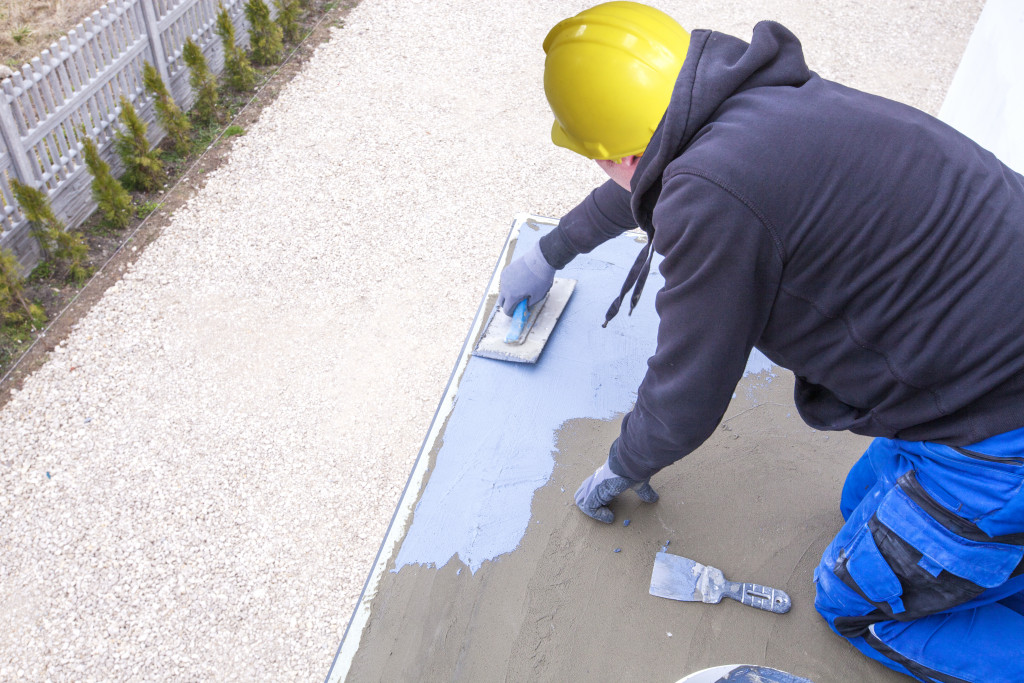- Acquiring a solid education, including high school, higher education, apprenticeships, and on-the-job training, is essential for a career in construction.
- Securing relevant certifications, such as the CCM, CPC, or CSCS for UK-based professionals, enhances credibility and competency.
- Choosing a specialized niche, whether residential, commercial, or infrastructure construction, aligns interests and skills with career goals.
- A successful construction career requires dedication, continuous learning, and a balance of education and experience.
The construction industry presents a lucrative career path due to steady demand, economic impact, and growth potential. According to the U.S. Bureau of Labor Statistics, the median annual wage for construction and extraction occupations was $47,430, higher than for all economic fields.
Furthermore, the Associated General Contractors of America reports that every billion dollars spent on construction projects creates an average of over 6,000 jobs, underlining the sector’s significant contribution to employment. The industry’s profitability can also be attributed to the constant need for infrastructure development and maintenance, residential housing, and commercial spaces, which aren’t subject to technological obsolescence. This consistent demand ensures the industry’s robustness and offers numerous opportunities for aspiring construction professionals.
However, becoming a professional is more than just job prospects and remuneration. It requires a specific skill set, education, and experience to succeed in this field. Here are a few steps to take before becoming a construction professional.
Pursue Relevant Education

Education plays a crucial role in forming a solid foundation for a career in construction. It equips aspiring professionals with the technical know-how, understanding of safety protocols, project management skills, and knowledge about the latest industry standards and regulations. A well-rounded education can significantly enhance employability and prospects for career advancement in the construction industry.
Acquiring a High School Diploma or GED
The initial step towards a career in construction often begins with a high school diploma or GED. High school mathematics, shopping, and blueprint reading courses can provide beneficial background knowledge. A GED, an equivalent to a high school diploma, can also be pursued by those who haven’t completed high school.
Higher Education Degree
Higher education in a construction-related field provides in-depth knowledge and skills. Many colleges and universities offer construction management, civil engineering, and architecture degrees. Vocational and trade schools provide certificate programs in fields such as carpentry, electrical, or plumbing, which are also valuable.
Apprenticeships and On-the-Job Training
Apprenticeships offer practical training in construction trades alongside classroom instruction. They provide first-hand experience and a chance to learn from seasoned professionals. On-the-job training, often offered by employers, is another way to acquire practical skills and hands-on experience in construction.
Secure the Essential Certifications
Securing relevant certifications is essential for anyone seeking professional services in the construction industry. These certifications validate your competency and professional credibility and demonstrate your commitment to the industry’s safety and quality standards.
The Certified Construction Manager (CCM) certification is highly respected in the industry and is offered by the Construction Management Association of America. This credential validates your knowledge and experience in managing the entire life cycle of a construction project.
The Certified Professional Constructor (CPC) certification is another valuable credential recognized throughout the construction industry. Offered by the American Institute of Constructors, this certification is ideal for those seeking a managerial role in construction.
Finally, if you’re based in the U.K., initiating your online certification application for the green CSCS card is a vital step in your professional journey. This card proves that you have the required training and qualifications for your job and is a prerequisite for most construction sites in the U.K.
It’s worth noting that the specific certifications required can vary depending on your specialism and geographic location, so it’s always worth researching which ones are most relevant to your career ambitions.
Pick a Niche

The construction industry is vast, encompassing numerous fields and specialisms. As a budding professional, choosing a niche where your interests, skills, and career aspirations align is essential. Selecting a specific niche allows you to focus your studies and training, increasing your proficiency in a particular area and making you more desirable to potential employers. It also minimizes competition, as specialized skills are usually in high demand and less common in the workforce.
Residential Construction
Residential construction is an ideal niche for those interested in building homes. This sector focuses on constructing and renovating houses, apartments, and other residential structures. Professionals in this field work closely with clients, architects, and subcontractors to create comfortable, safe, and aesthetically pleasing living spaces.
Commercial Construction
Commercial construction is another niche field in the industry. This niche includes constructing office buildings, retail stores, warehouses, and other commercial facilities. Professionals in commercial construction must be familiar with various building materials and construction methods, regulations, and codes that govern commercial structures.
Infrastructure Construction
Infrastructure construction, also known as heavy civil construction, is a niche that involves the construction of large-scale public works projects like highways, dams, bridges, railways, and water treatment facilities. This field requires high engineering expertise and knowledge of construction materials and methods. Infrastructure construction projects often significantly impact communities and the environment, making this a fulfilling niche for those interested in contributing to societal development and sustainability.
Final Thoughts
Becoming a construction professional requires dedication, hard work, and a lifelong commitment to learning. Pursuing relevant education, securing necessary certifications, and choosing a niche field are essential to success in this industry. With the right combination of education and experience, you can build a rewarding career as a construction professional. So, if you’re passionate about creating structures that stand the test of time, don’t hesitate to take the necessary steps toward becoming a construction professional today.

